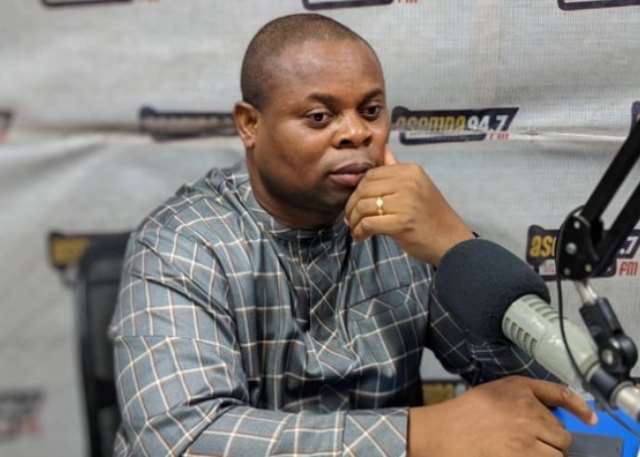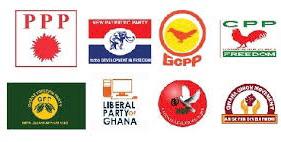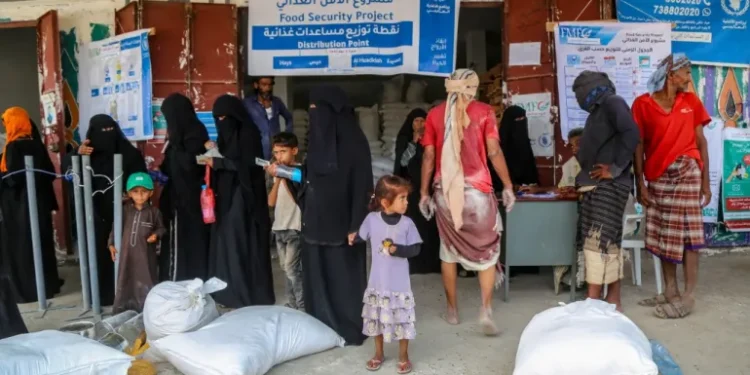Opposition parties play a vital role in safeguarding democratic governance, acting as a necessary counterbalance to ruling administrations.
In Ghana, however, concerns are mounting over the effectiveness and credibility of opposition parties, with experts warning that unless internal dysfunctions are addressed, their ability to offer a viable alternative will continue to erode.
Prof. Stephen Kwaku Asare, a respected legal scholar and governance advocate, has outlined what he described as common traps that opposition parties must avoid if they wish to remain relevant.
Echoing similar sentiments from Franklin Cudjoe, President of IMANI Africa, Prof. Asare emphasized that the health of Ghana’s democracy hinges not just on electoral rituals but on the strength and maturity of its political competition.
Franklin Cudjoe argued that opposition parties are essential to democratic vitality because they serve as watchdogs of government. “They scrutinize governmental decisions, expose corruption, and ensure that public policies serve the interests of the nation rather than a select few.”

However, Prof. Asare contended that too many opposition parties are falling into patterns that weaken their role and public perception.
Among the traps he identified, the first is the Vacation Trap, where parties treat electoral defeat as a time off rather than a call for reinvention.
“They simply wait for public fatigue with the ruling party, assuming power will rotate back automatically. This ‘two-party cycle syndrome’ breeds complacency, not competitiveness.
“The Spoils Trap: Prioritizing Power Over Policy: Once in power, the goal becomes distributing appointments and contracts, not building a legacy of ideas. When the party returns to opposition, it carries no coherent ideology, only bruised egos and entitlement.”
Prof. Stephen Kwaku Asare

Closely tied to this is the Denial Trap, where losses are blamed on external forces like election rigging or media bias, without any genuine internal reflection.
The Grudge Trap is another common pitfall where internal critics are punished rather than engaged.
Prof. Asare warned that purging dissenters weakens the party’s moral credibility and hampers its ability to regenerate fresh ideas.
Opposition Parties, Loud But Lost
Furthermore, Prof. Stephen Asare pointed to the Patronage Trap, where membership drives are viewed more as an opportunity to expand spoils rather than deepen ideological commitment.
According to him, this reduces opposition parties to transactional machines, rather than movements with a clear policy vision.
Then there is the Fiction Trap, where slogans and fabricated statistics are used to mask the absence of substantive policy.
This makes opposition parties appear reactive and noisy, rather than focused and trustworthy.

In tandem with this is the Megaphone Trap, where disjointed media messaging—especially online—creates heat but no clarity. Public discourse becomes riddled with loud monologues rather than informed dialogue.
“The Disconnect Trap: Alienating the Politically Indifferent. By failing to speak to broader public concerns and constantly recycling old narratives, opposition parties alienate the politically disengaged and exhaust their base. Instead of expanding support, they shrink their relevance.
“The Hypocrisy Trap: Preaching Democracy, Practicing Autocracy. Opposition parties demand transparency in government while imposing candidates, rigging internal elections, and punishing dissent. This contradiction is visible, and it steadily corrodes public trust.”
Prof. Stephen Kwaku Asare
Finally, the Credibility Trap is perhaps the most damaging. When all these issues accumulate, the party no longer appears to be a government-in-waiting but rather a recycled version of what voters already rejected.
Without internal reform, they cannot claim the moral or intellectual mandate to lead.

Accordingly, Prof. Asare urged opposition parties to focus first on internal reform. “The Way Forward: Opposition Begins at Home,” he noted, suggesting that parties must become institutions grounded in public service rather than platforms for political elites.
According to him, they should be strategic in structure, open to criticism, and policy-driven.
He further warned that democracy is not sustained by periodic elections alone. It depends on credible alternatives that reflect integrity, purpose, and dedication to public good. “Until then, our democracy will remain enviable in spite of its opposition parties, not because of them.”
The message is clear: for opposition parties to meaningfully contribute to Ghana’s democratic journey, they must abandon complacency and embrace transformation.
Reform, discipline, and visionary leadership are not optional—they are necessary for any party seeking the trust of the electorate.
READ ALSO: Ghanaians React to 15% Fare Reduction Amid Fuel Price Drop























